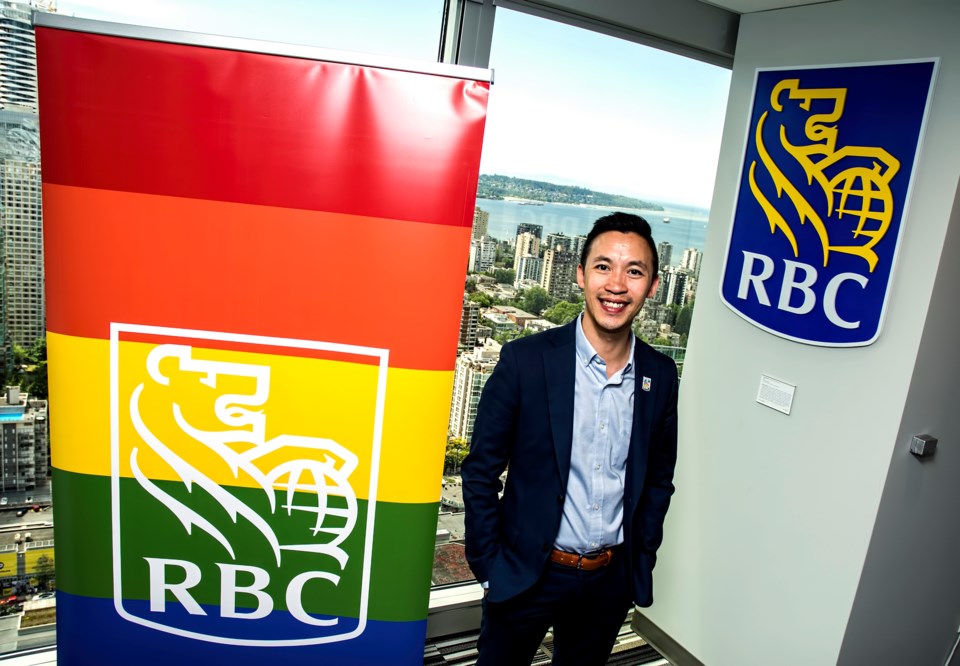Many B.C. companies and brands are taking the opportunity to show their support for the LGBTQ+ community in June by launching initiatives and campaigns that coincide with Pride Month.
However, a recent report suggests that the number of people who support organizations that are actively promoting LGBTQ+ equality has fallen to 44 per cent this year from 49 per cent in 2021.
And 19 per cent of consumers say they now oppose this messaging in corporate marketing, according to Ipsos’s Pride Survey 2024, which was released in late May and surveyed individuals in 26 countries, including Canada.
“I think there’s a really big shift in consumerism in general right now, and people are being a lot more intentional and careful about where they spend their money and what companies they support,” said Cicely Blain, CEO of Bakau Consulting, a Vancouver-based equity, inclusion and anti-racism consulting company.
“Partly [because of] the cost-of-living crisis and general economic situations that people are in,” said Blain. “People, for a long time, have been asking for corporations to put their money where their mouth is, to donate to non-profits and invest in that work without necessarily having to put their name all over it.”
There is an increasing level of attention on the actions companies and organizations take to back up their equity, diversity and inclusion initiatives, according to Jade Pichette, director of programs of Pride at Work Canada, a not-for-profit that aims to help companies build more-inclusive workplaces.
“It’s not to say that it isn’t nice to see rainbows everywhere during Pride—because it is—but that needs to be followed up with action,” said Pichette.
“They have to make sure that they’re doing this work all year round, make sure that they have a diversity, equity and inclusion department, and have an employee resource group for 2SLGBTQI+ employees as well.”
It’s important for companies to put new policies in place to be more inclusive of the community, said Pichette, who added that organizations that are promoting Pride but not creating real change will make their LGBTQ+ employees feel more excluded, and will make their initiatives look performative and inauthentic.
“There’re a few companies that we’ve worked with who’ve actually stepped back from using a rainbow logo. They haven’t stopped doing the work internally; they have just realized that they have more work to do before they can claim that symbol,” Pichette said.
Pichette said Pride at Work Canada has received a lot of audit requests from companies—including many in B.C.—to see what they can do to better support their employees, from updating their parental-leave policies, to considering pronoun preferences in communications procedures, to offering education and training.
Royal Bank of Canada (RBC) (TSX:RY), which has celebrated Pride for decades, has worked with organizations such as Pride at Work during Pride Month and throughout the year to improve its processes and programs for employees and clients.
This month, RBC changed its policies and procedures around account openings to remove barriers that existed for clients whose gender is not listed on their identification. This change came after listening to people in the community, said Sam Wong, B.C. regional manager of advisor enablement at RBC.
“That was an investment that the bank has made, and it took a lot of departments to work together to update a policy like that.… This is a small change that is going to make a big impact to folks in the community,” said Wong.
“For RBC, celebrating Pride Month is really important, because we have a lot of 2SLGBTQ+ folks that work and support RBC, but we also have a lot of clients that we touch, and these efforts that we have really do make an impact in the community.”
Consumers want to see authenticity in companies’ initiatives, and that comes from long-term commitments to addressing issues and consistency in their efforts, said Eddie Ning, an assistant professor at the University of British Columbia who specializes in marketing.
“You’re not just posting something Pride-related in Pride Month. Actually you have different posts throughout the year, so this is consistent,” he said as an example.
However, businesses shouldn’t shy away from showing their support for the LGBTQ+ community this month—or from showing and sharing their support of any other minority group, said Ning.
The population of people who publicly identify as LGBTQ+ has increased significantly over the past 10 years and younger consumers increasingly want to be associated with brands that align with values such as diversity and inclusion, according to Ning.
“These initiatives are a way for companies to showcase that they’re competent and relevant in today’s landscape and to demonstrate … they understand what consumers want,” he said.
“Consumers want to be associated with the companies that are doing these activities outside of the spotlight, but you still have to communicate clearly with the consumers—that’s important. They need to know what you’re doing.”




